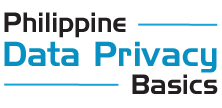Maya backs CICC’s scam safe initiative, reinforces commitment to cybersecurity
Maya reaffirmed its support for the Department of Information and Communications Technology’s (DICT) Cybercrime Investigation and Coordinating Center (CICC) through the agency’s Scam Safe initiative, supporting efforts to strengthen public awareness and understanding of online scams and cyber fraud.
